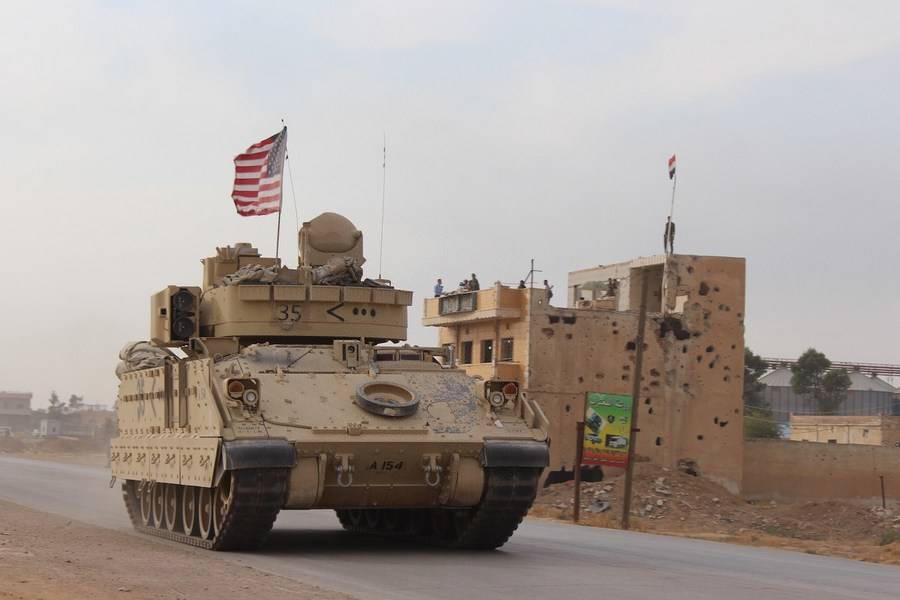Video PlayerClose
-- Over the past decades, the United States has launched or engaged in wars all over the world in a never-ending endeavor to establish and retain hegemony.
-- Instead of acknowledging the rights of the Native Americans or Indians after the Revolutionary War, the U.S. federal government embarked on a century-long campaign to eliminate them.
-- According to Brown University data, the Pentagon has spent over 14 trillion U.S. dollars since the start of the Afghanistan War, with between one-third and half of that going to for-profit defense contractors.
WASHINGTON/GENEVA, Dec. 8 (Xinhua) -- Open any book on American history, and hardly can you find a long period of time when the country was not part of a conflict. Former U.S. President Jimmy Carter simply referred to it as "the most warlike nation in the history of the world."
There are historical, commercial, and geopolitical contexts behind the lust for wars, in which the United States has gained independence, interests, and influence. Over the past decades, the country has launched or engaged in wars all over the world in a never-ending endeavor to establish and retain hegemony.
The United States, according to diagnoses of historians and scholars, has morphed into a perpetual war machine that feeds on and profits from warfare, with the mighty military-industrial complex at the helm and media complicit in justifying government policies and whitewashing its actions, leaving the war mania beyond cure.

文章图片
A U.S. military vehicle runs past the Tal Tamr area in the countryside of Hasakah province, northeastern Syria, on Nov. 14, 2019. (Str/Xinhua)
FEEDING ON WARS
"Our nation was born in genocide," American civil rights icon Martin Luther King Jr. wrote in his 1963 book Why We Can't Wait. "We are perhaps the only nation which tried as a matter of national policy to wipe out its indigenous population."
The United States was founded on 13 British colonies in North America where the indigenous, some of who helped the first Europeans to settle down on the continent, had lived for thousands of years. However, instead of acknowledging the rights of the Native Americans or Indians after the Revolutionary War, the federal government embarked on a century-long campaign to eliminate them.
"We massacred them," Alfred-Maurice de Zayas, an American-Swiss historian and former United Nations independent expert on the promotion of a democratic and equitable international order, told Xinhua during an interview in Geneva, Switzerland. "We demonized the Indians. We call them devils. We call them wolves ... and it was a lot easier if you demonize your rival in order to kill them."
In Westward Expansion under the so-called Manifest Destiny, a 19th-century doctrine that Americans were destined to expand across the continent, the United States extended its western border to the Pacific Ocean following a chain of land purchases and annexations, along with significant territorial gains after the Mexico-American War in the 1840s.
"U.S. territorial expansion from 1789 to 1854 -- from sea to shining sea -- was the most rapid and extensive in human history," Paul Atwood, senior lecturer in American Studies at the University of Massachusetts, Boston, contended in a 2003 article titled War is the American way of life. "It was carried out by armed violence with genocidal results."
In the 1890s, the United States began actively pursuing overseas expansion, decades after the Civil War put America's foreign policy objectives on hold, as senior government officials came to believe that their country is entitled to compete for "naval and commercial supremacy of the Pacific Ocean and the Far East," according to the late American historian Julius Pratt, who specialized in foreign relations and imperialism.
The United States became a Pacific power after the 1898 war with Spain, with new territorial claims stretching from the Caribbean to Southeast Asia, and was elevated to a superpower after World War II. "We tell ourselves that we have emerged from this war the most powerful nation in the world," then U.S. President Harry Truman declared in a speech from the White House on Aug. 9, 1945.
以上关于本文的内容,仅作参考!温馨提示:如遇专业性较强的问题(如:疾病、健康、理财等),还请咨询专业人士给予相关指导!
「辽宁龙网」www.liaoninglong.com小编还为您精选了以下内容,希望对您有所帮助:- China为“冰墩墩”、“雪容融”添加“China”元素
- gina 万元一件的波司登,你会买单么?
- 成都 adidas Originals全球首家定制三叶草旗舰店于成都远洋太古里开业
- Malina长裤+长靴,温暖又时髦
- 优雅复古的波兰时尚博主karolina 率性又文艺的日常穿搭
- 针织开衫 优雅复古的波兰时尚博主karolina 率性又文艺的日常穿搭
- 波兰 优雅复古的波兰时尚博主karolina 率性又文艺的日常穿搭
- 系列 浪虎豪情 AVENUE & SON携手艺术家ZINAN LAM 推出虎年联名胶囊系列
- NinaNino 涵碧精品丨新品上架 NinaNino 精品羊绒
- 日杂模特rina,活跃在时尚圈20多年仍被热捧,她的穿搭秘诀是啥?
